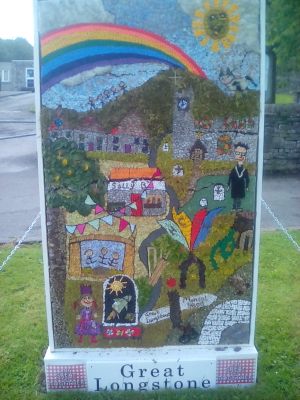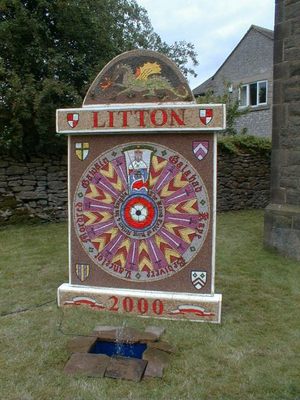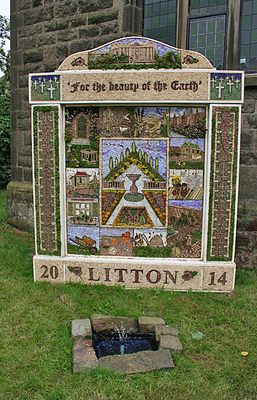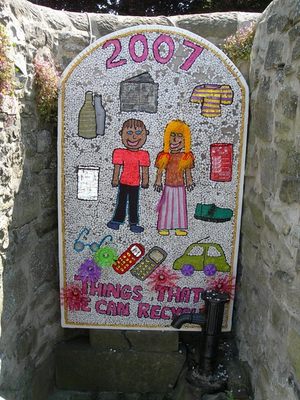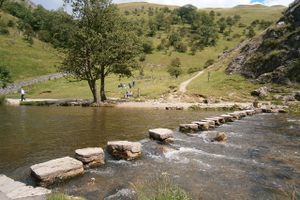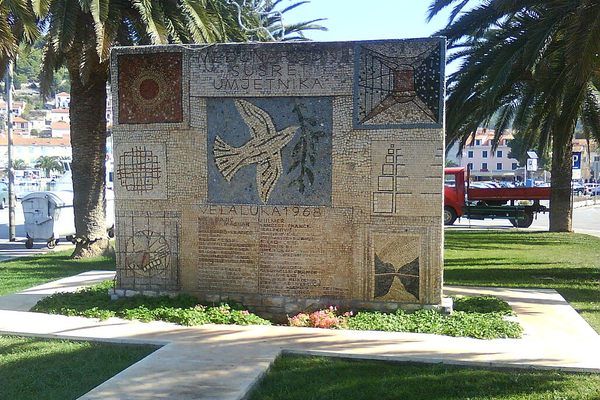About
Well dressing is an old custom which was once widespread throughout rural England. However, by the early 19th century, enthusiasm for the activity had run dry. It more or less died out everywhere except for the village of Tissington in Derbyshire. The colorful tradition has since been revived, with villages using it to allow residents to express their artistic talents, encourage community spirit, raise money, and attract tourists.
In the local usage of the term, a "well" is applied to both artificially dug wells and natural springs. Dressing the wells takes place in the summer. Traditionally, it was done by pressing flower petals onto a bed of wet clay, which transformed the well into a temporary mosaic bursting with natural colors. However, the plant-based material tends to wilt rather quickly, so the floral frills were removed after about a week. Modern-day well dressings incorporate a wider range of materials but flower petals still always dominate.
The origins of the tradition may trace back to pagan times. Some say the decorations were intended to please the gods that supplied water to the villages. Others suspect well dressing got its start a few millennia later, as a way for villagers to give thanks for surviving the Black Death.
The flower mosaics used to only depict scenes from the Old and New Testaments. In recent years the subjects have become much broader and are often humorous or contain a social message. Sometimes the artwork even serves as an act of remembrance.
Though well dressings happen in other parts of England, the most common occurrences are those that are either within Derbyshire or those that modeled their event off the county’s tradition.
Related Tags
Know Before You Go
While the pin on the map is at Tissington, the traditional home of the custom, during the summer there is usually a well dressing event happening somewhere within or close to the borders of the Peak District National Park.
Published
July 27, 2017

